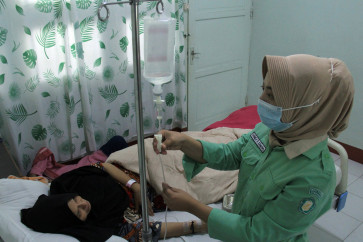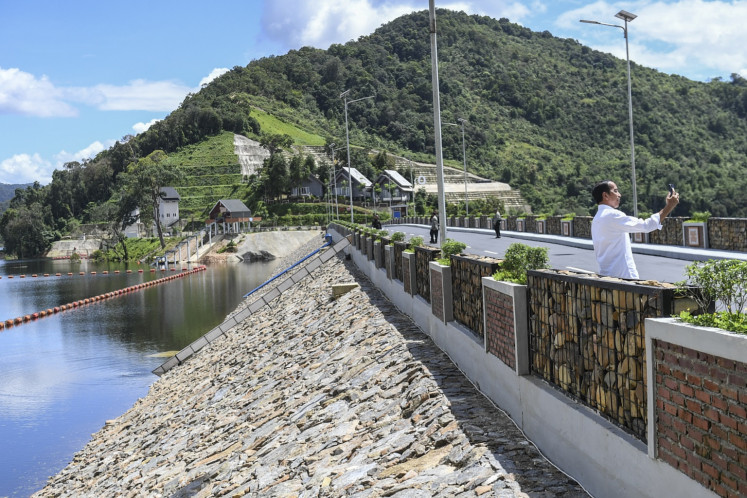Consumer confidence, retail sales recover from Delta impact
As the year-end holiday season approaches, the two indicators point to increased household spending, which has long been a key driver of economic activity in the country.
Change Size

C
onsumer confidence and retail sales data point to a recovery from the slump caused by the Delta wave of COVID-19, as eased activity restrictions bode well for household spending ahead of the year-end holiday season.
The consumer confidence index was recorded at 113.4 in October, Bank Indonesia (BI) reported on Monday, marking a return to the optimistic territory above the threshold of 100 points, a level not seen since March 2020. The index plunged to its lowest level in at least 12 years in August.
BI also reported on Tuesday that the retail sales index was estimated to have grown by 5.2 percent year-on-year (yoy) to 193 in October, more than making up for the 2.2 percent annual contraction seen in August.
“The consumer perception of the current economic situation appears to be improving, especially with regard to employment and income,” BI spokesman Erwin Haryono said on Monday, as quoted in a press release.
“This development is due to growing economic activity and people’s [improving] income, in line with the relaxation of mobility restrictions in various regions as a result of a COVID-19 response that had been getting better.”
Household spending, which accounts for more than half of Indonesia’s GDP, grew by a mere 1.03 percent in the July-September period from a year earlier as the Delta outbreak and government measures to contain it hit consumer activity, Statistics Indonesia (BPS) data show.
Read also: Surge in commodity prices drives growth in Indonesia
While the Delta wave disrupted the country’s economic recovery, the number of working-age Indonesians affected by the pandemic nevertheless declined by 26.79 percent yoy to 21.32 million in August, according to BPS.
The current income index recovered in October for consumers earning more than Rp 3 million (US$211), BI data show. But for those earning Rp 3 million or less, the index remained in pessimistic territory, indicating that their current income situation was still worse than six months earlier.
Josua Pardede, the chief economist of publicly listed Bank Permata, estimated that the annual growth of household spending in the fourth quarter would be around 4.5 percent in light of the latest development highlighted by these leading indicators.
“[The consumer expectations index] indicates that if COVID-19 management can be maintained with case figures remaining low, our economic recovery will be stronger going forward, especially next year,” Josua told The Jakarta Post.
The retail sales index was estimated to have improved across the board, yet almost all categories posted an annual contraction in October nonetheless, the exceptions being vehicle fuel and the food, beverage and tobacco category.
Shinta Kamdani, the deputy chairwoman of the Indonesian Employers Association (Apindo), said the improvement in retail sales had not compensated for the losses suffered by businesses when the government tightened pandemic curbs.
Demand is expected to continue recovering until year-end, but a resurgence in COVID-19 cases, as seen following the 2020 holiday season, poses a looming risk, Shinta noted.
“We are still far from the prepandemic situation because, while there has been an improvement in cash flow thanks to improving sales, it is happening gradually rather than drastically,” Shinta told the Post on Tuesday.
The central bank added that retailers expected inflationary pressure to pick up in December amid the Christmas and New Year holiday season. Private consumption usually peaks during this time of year.
Andry Satrio, an economist at the Institute for Development of Economics and Finance (Indef), said the energy crisis abroad, shortages of certain goods and shipping disruptions posed supply-side challenges that would last at least until the first quarter of 2022. These issues may add more pressure on prices at the end of the year.
“One of the challenges right now is that when there is an improvement on the demand side, there is a crunch or shock on the supply side, and this is happening globally,” Andry told the Post on Tuesday.









